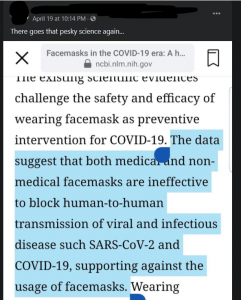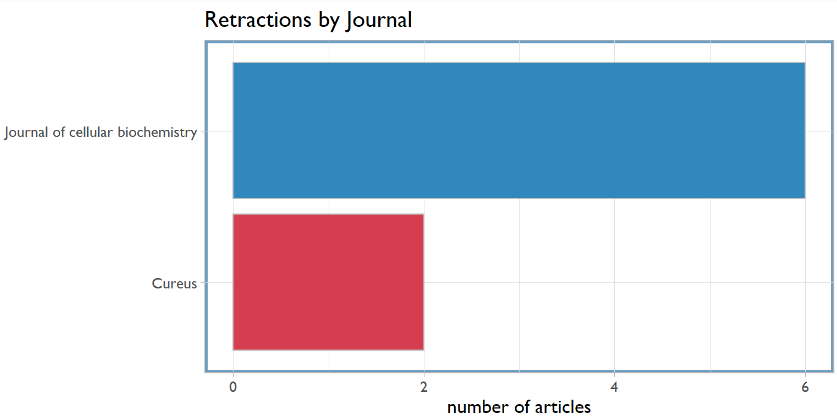
The Cardinal’s Revenge: April’s Retraction Notice
Another month, another fresh batch of retraction. Twenty-Five articles were retracted by journal editors this month. Before we get to the results, I want to focus on a non-retracted article that got some press earlier this month and prompted a fair amount of pushback.
Earlier this month, one of those Facebook friends that I no longer pay attention to posted the screenshot below. Although I’m used to the pseudoscience flowing on Facebook, the fact that this screenshot was coming from an NIH website struck me as worth digging more deeply into.

[facepalm]
This particular article was published in the journal Medical Hypothesis last November. The mission, as stated on the website: “Medical Hypotheses was therefore launched, and still exists today, to give novel, radical new ideas and speculations in medicine open-minded consideration, opening the field to radical hypotheses which would be rejected by most conventional journals.”
The article in question, “Facemasks in the COVID-19 era: A health hypothesis” began to make rounds in the popular media this month for a few reasons. The sole author purported to work for Stanford, which came back and said, “no, you don’t.”
Stanford Medicine strongly supports the use of face masks to control the spread of COVID-19. pic.twitter.com/DiY3sWezCN
— Stanford Medicine (@StanfordMed) April 21, 2021
However, by that time, the article had already been picked up and gotten traction in the conservative media, where it presumably spread through the normal social media channels. Google trends show a spike in searches for “covid facemask” on April 19th, which is the date it showed up in my Facebook newsfeed.
Snopes has a thorough deconstruction of the “evidence” presented, while still managing to get a dig in at the journal for publishing past wild speculations, like that high heels could cause schizophrenia.
Look, it’s totally okay to generate ideas and try to think divergently about how to solve pressing problems. However, you have to show your work.
You’ve got a good idea? Prove it. And that, dear readers, is the essence of science. Now, misinformation is a whole different problem, one which we’ll tackle in the coming weeks.
As noted above, there were 25 retractions in the past month. The main attraction appeared in Nanoscale, a high-impact journal of nanotechnology. As a social scientist, I haven’t really heard much about nanotech in years, so I don’t know anything about the current state of the field. The article, Size-selected silver nanoparticles for MALDI-TOF mass spectrometry of amyloid-beta peptides is about an improved spectrometry method whose results are called into question and whose researchers stopped cooperating.

Once again, we see the normal candidates leading the number of retractions. It’s not clear whether the Journal of Cellular Biochemistry articles are related. They all note that objections were raised by a third party, and that the authors stopped cooperating.
And like that [poof!], they’re gone.
The full list of retractions can be found at the link below



